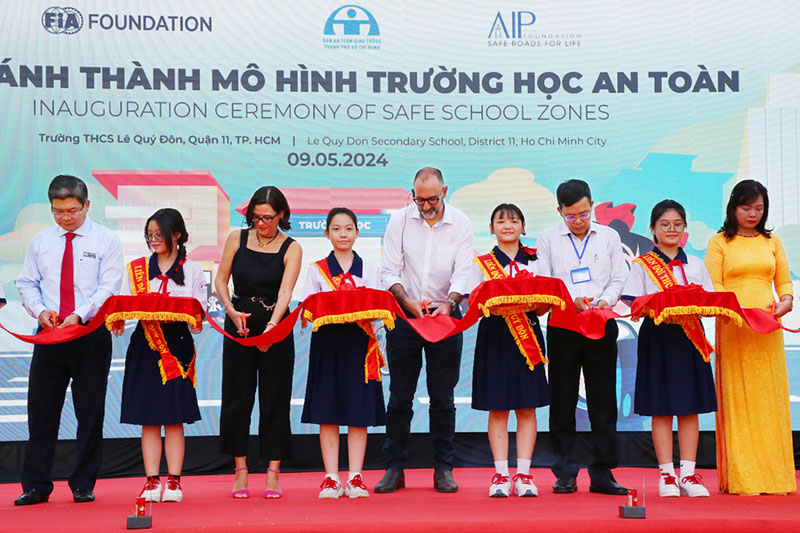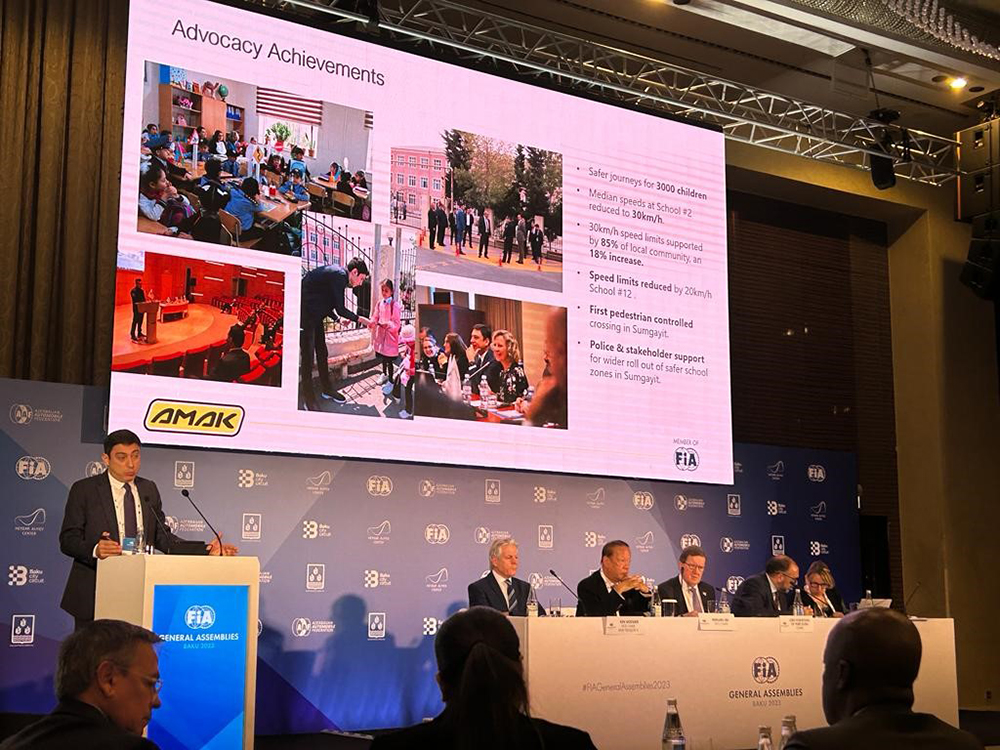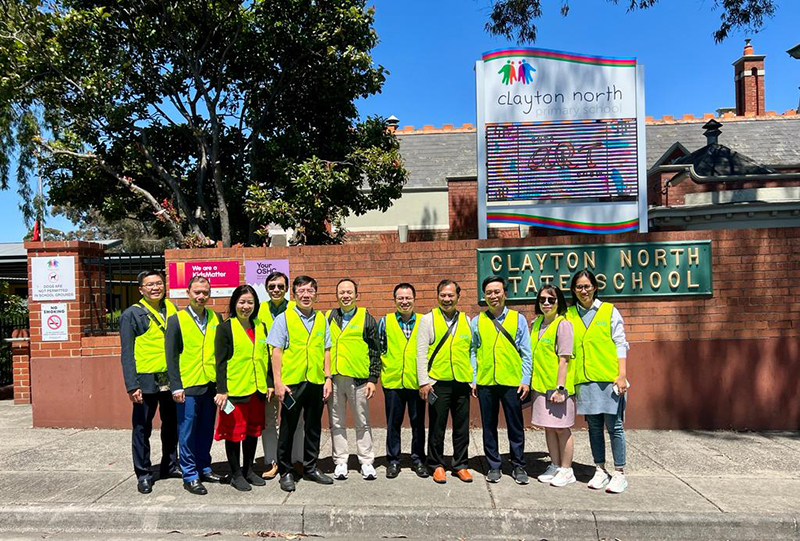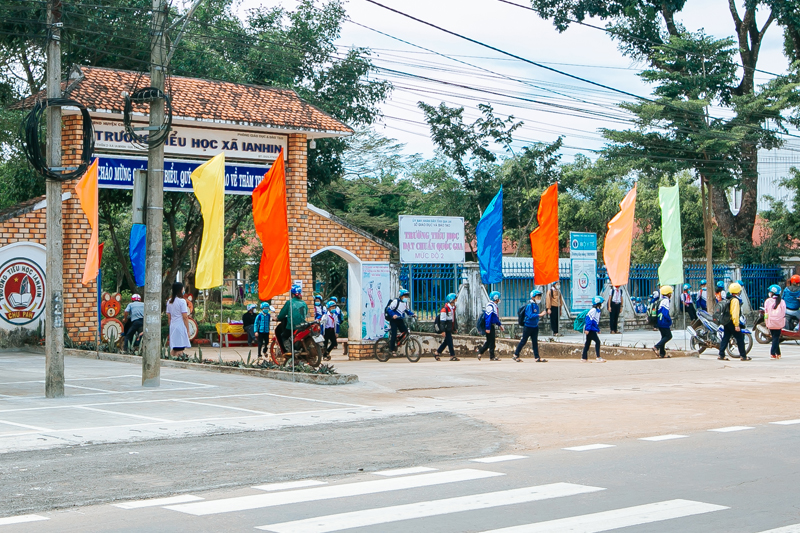School street interventions launched in Bogota with support of FIA Foundation
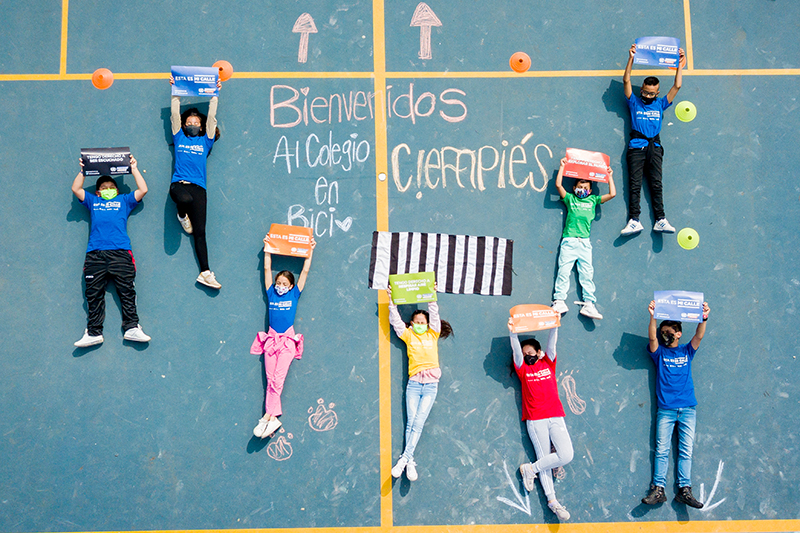
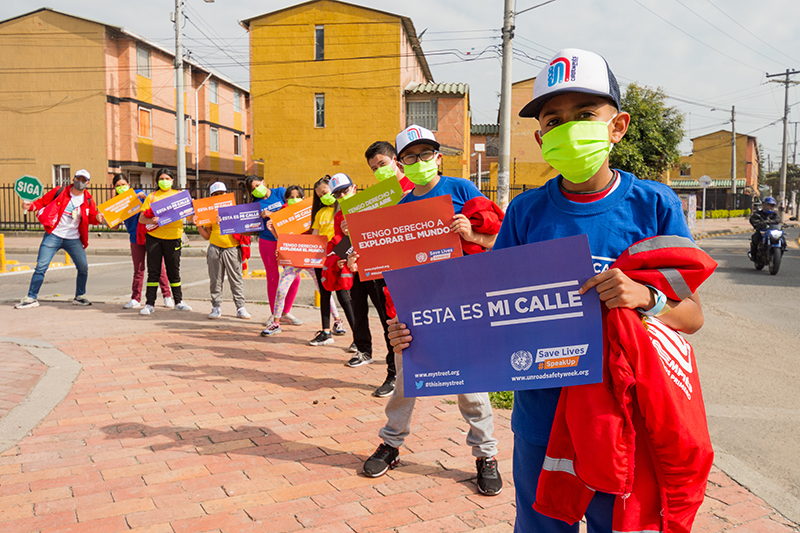
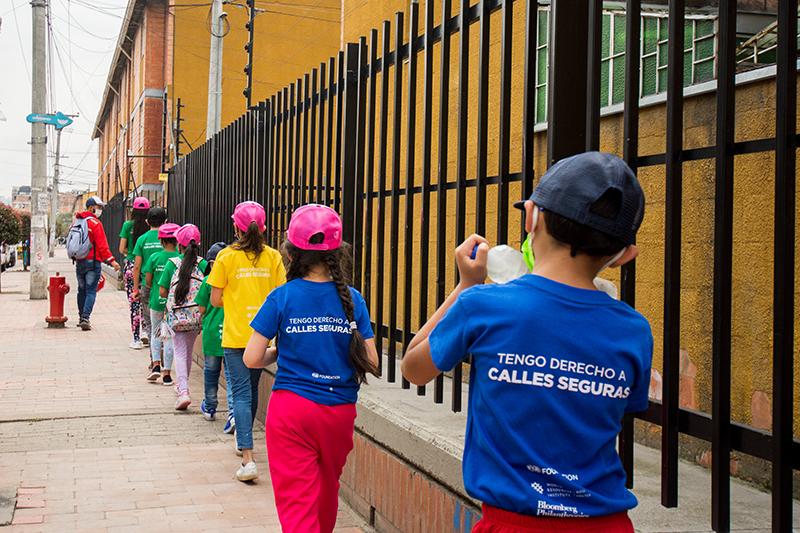

New infrastructure interventions in Bogota, Colombia, protecting pupils on their journeys to school and implemented by the World Resources Institute, with the support of the FIA Foundation, have been celebrated in a series of special events in a celebration day.
Speed reduction infrastructure measures are enabling safe walking and cycling for more than 7,000 pupils - particularly those from low-income homes - in ten schools across the city, including three (Gerardo Molina, Tibabuyes Sede A, La Gaitana) directly supported by FIA Foundation funding and in collaboration with the Bogota Secretary of Mobility and Bloomberg Philanthropies.
Special COVID-safe events helped students engage with the new street infrastructure and understand how the street design can make their journeys safer and more equitable. The student-led events saw around 100 participants make the most of the new spaces to move, explore how the streets will meet their needs, and socialise from a distance.
WRI used heat mapping to identify areas of high-risk for vulnerable road user injury, where speed is recognised as the major factor, which the city agreed to re-zone with 30km/h limits. The infrastructure changes, which included parabolic overhangs and lane channelling, have had significant impacts on the speed of motorised traffic; at La Gaitana School the average traffic speeds decreased by 35% and at every site speeds dropped to well below the 30 km/h limit.
Jessica Kisner, Road Safety Project Coordinator at WRI Ross Center for Sustainable Cities, said: “The interventions have proven to be a huge success. There are four crucial components: data to support a greater impact; work with local organisations; understanding the global challenges applied at a local level; and, lastly, working with passion. You see how kids here face many challenges - with well-timed interventions, they can now get to school and back home safe. The whole community can use public spaces and love their surroundings. It´s something small that makes a huge difference.”
WRI plans further work in collaboration with the city’s Secretary of Mobility to assess and refine interventions, especially when schools reopen.



